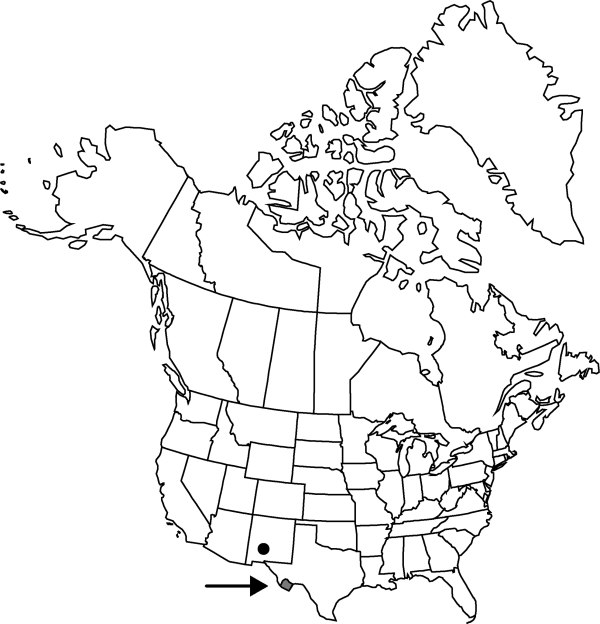Coryphantha duncanii
Cact. Succ. J. (Los Angeles) 41: 189. 1969.
Plants unbranched (rarely to 8 mature branches), white bristly spines obscuring stem. Roots dominated by a short or narrowly conic, carrotlike, succulent taproot, 1/3–1/2 of stem diam. Stems deep-seated, inconspicuous, obovoid, ovoid, or spheric to ± conic, 2.5–6 × 1–3.4 cm; tubercles 3–6 × 2.6–4 mm, moderately soft; areolar glands absent; parenchyma not mucilaginous; druses in pith and cortex abundant but nearly microscopic; pith 1/2 of lesser stem diam.; medullary vascular system absent. Spines (21–) 31–44 (–55) per areole, all snowy white, dark tips (tan to reddish-brown) on medium and large spines; radial spines (18–) 20–41 per areole, (4–) 6–9 (–10) × 0.03–0.2 mm; subcentral spines 0–12 per areole; outer central spines (1–) 3–9 (–17) per areole, appressed or (usually) slightly projecting; inner central spines (spines most likely to interpreted as central) 0 (–1) per areole, ascending, descending, or porrect, straight, longest spines (6–) 7–14 (–19) × 0.17–0.27 mm. Flowers nearly apical, 15–30 × 13–19 mm; outer tepals conspicuously fringed; inner tepals 14 per flower, margins white or cream (to light pink), midstripes pinkish to brown or brownish green, proximally white, 8–12 × 1.5–3 mm; outer filaments white or pinkish; anthers bright-yellow; stigma lobes usually 4, dark green to bright-yellow. Fruits bright red throughout, ellipsoid, cylindric, or clavate, 11–20 × 3–5 mm, not very succulent; floral remnant deciduous. Seeds black, ± spheric, ± 1.2 mm, pitted. 2n = 22.
Phenology: Flowering Feb–Mar(-May); fruiting mostly May.
Habitat: Limestone slopes, mostly in crevices of massive limestone outcrops
Elevation: 700-1700 m
Discussion
Of conservation concern.
Coryphantha duncanii is inconspicuous, difficult to identify, and usually rare. Other coryphanthas in its range have thicker spines, except for C. chaffeyi and C. dasyacantha. Coryphantha duncanii resembles a stunted, crevice-limited growth form of C. dasyacantha but has caducous floral remnant. It is closely related to C. zilziana Boedeker of Mexico.
Selected References
None.
